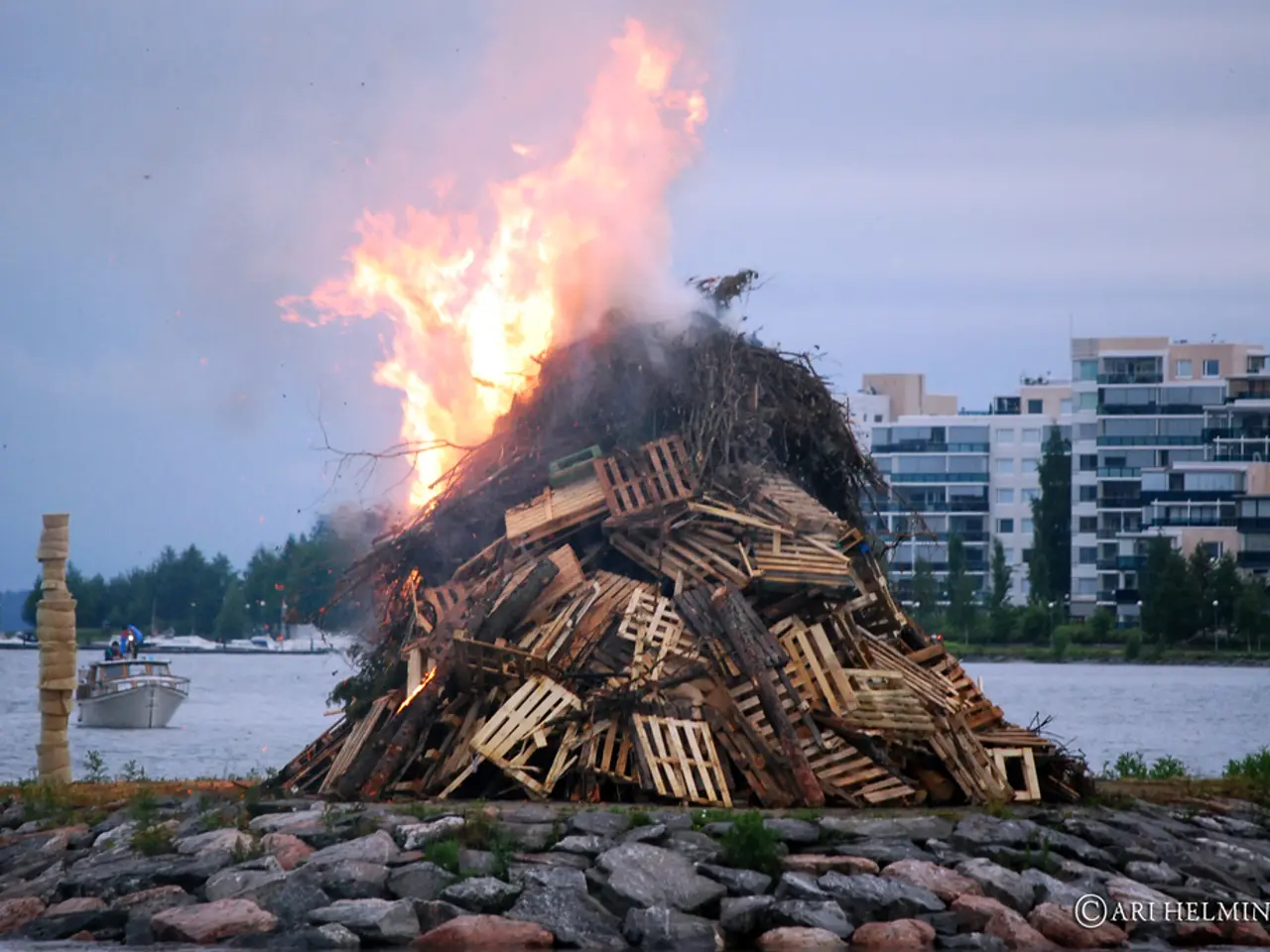Thousands of personnel are engaged in combating forest fires across Portugal
Portugal is currently grappling with severe wildfire conditions, particularly in the northern regions, as the country experiences an intense heatwave. The state of alert, initially announced from August 3 through August 7, remains in effect due to soaring temperatures reaching up to 44°C, significantly increasing wildfire risks.
The affected municipalities include Arouca, Ponte da Barca, and others in the districts of Viana do Castelo, Braga, Vila Real, Porto, and Aveiro. As of August 4, at least four active fires are concentrated in these regions, with the rural fire in Arouca requiring the most resources, involving over 770 operatives.
Several fires have caused injuries (19 people injured) and forced evacuations, notably in Ponte da Barca, Aveiro, and Porto districts. To assess the extent and impact of the fires, Copernicus rapid mapping has been utilised in Arouca and Ponte da Barca.
According to recent statistics, nearly 42,000 hectares have been burned in 2025, eight times higher than the same period in 2024 and the highest since 2022. Over 5,200 fires have been recorded this year, with around 72% of burned areas and 53% of fires occurring in the northern regions.
The Portuguese government has taken several measures to combat these wildfires. About 2,440 firefighters, 766 vehicles, and 13 aircraft have been deployed nationwide, with approximately 1,800 firefighters focused on the northern affected areas. Access and movement in forested areas have been prohibited, and activities that could trigger fires, such as the use of machinery, fireworks, or open flames in forest zones, have been banned.
Looking ahead, the European Forest Fire Information System predicts that the wildfire danger will remain high to extreme over the coming 48 hours in these regions, with southern Portugal also facing very high to locally extreme risk. The government is enhancing operational firefighting structures and enforcing extraordinary protection and prevention protocols during this period.
The situation in the affected municipalities is expected to remain critical for several days, with the Portuguese Institute of the Sea and Atmosphere (IPMA) identifying much of the northern and central interior of the country as currently being at maximum risk of rural fires. The IPMA has not yet activated the European Civil Protection Mechanism for fires, and the Secretary of State for Civil Protection, Rui Rocha, has not made any new statements about the government's efforts to ensure the availability of aerial resources for fighting fires.
In addition to Arouca and Ponte da Barca, other municipalities such as Bragança, Vila Real, Viseu, Guarda, Castelo Branco, Coimbra, and Santarém are also facing high risks. Some municipalities in the Algarve are expected to experience a worsening of the maximum risk of rural fires in the coming days, according to IPMA.
In Ponte da Barca, a fire that started in the Peneda-Gereš National Park on Saturday has spread to the municipality of Terras de Bouro (Braga district) this morning, currently being fought by nearly 400 firefighters. The National Emergency and Civil Protection Authority (ANEPC) has requested satellite imagery for fires in Arouca (Aveiro district) and Ponte da Barca (Viana do Castelo district).
The Portuguese authorities are working diligently to combat these wildfires and protect the affected communities. As the situation remains critical, ongoing updates and support from the international community are crucial to ensure the safety and wellbeing of those living in the affected regions.
- Despite the current wildfire crisis primarily affecting northern Portugal, warnings and concerns about potential environmental-science issues have been raised for the Algarve region as well, according to recent forecasts by the Portuguese Institute of the Sea and Atmosphere (IPMA).
- The state of wildfire emergency in Portugal is not just a matter of politics and general-news; it has substantial scientific implications, as the increasing numbers of wildfires and the extent of burned territories point towards severe environmental-science consequences and subsequent recovery challenges.
- As the country strives to mitigate the devastating wildfire conditions, scientific institutions and organizations, such as Copernicus, have provided support in assessing the impact of these fires using rapid mapping techniques, contributing essential data and knowledge for future wildfire prevention and management policies in Portugal.





